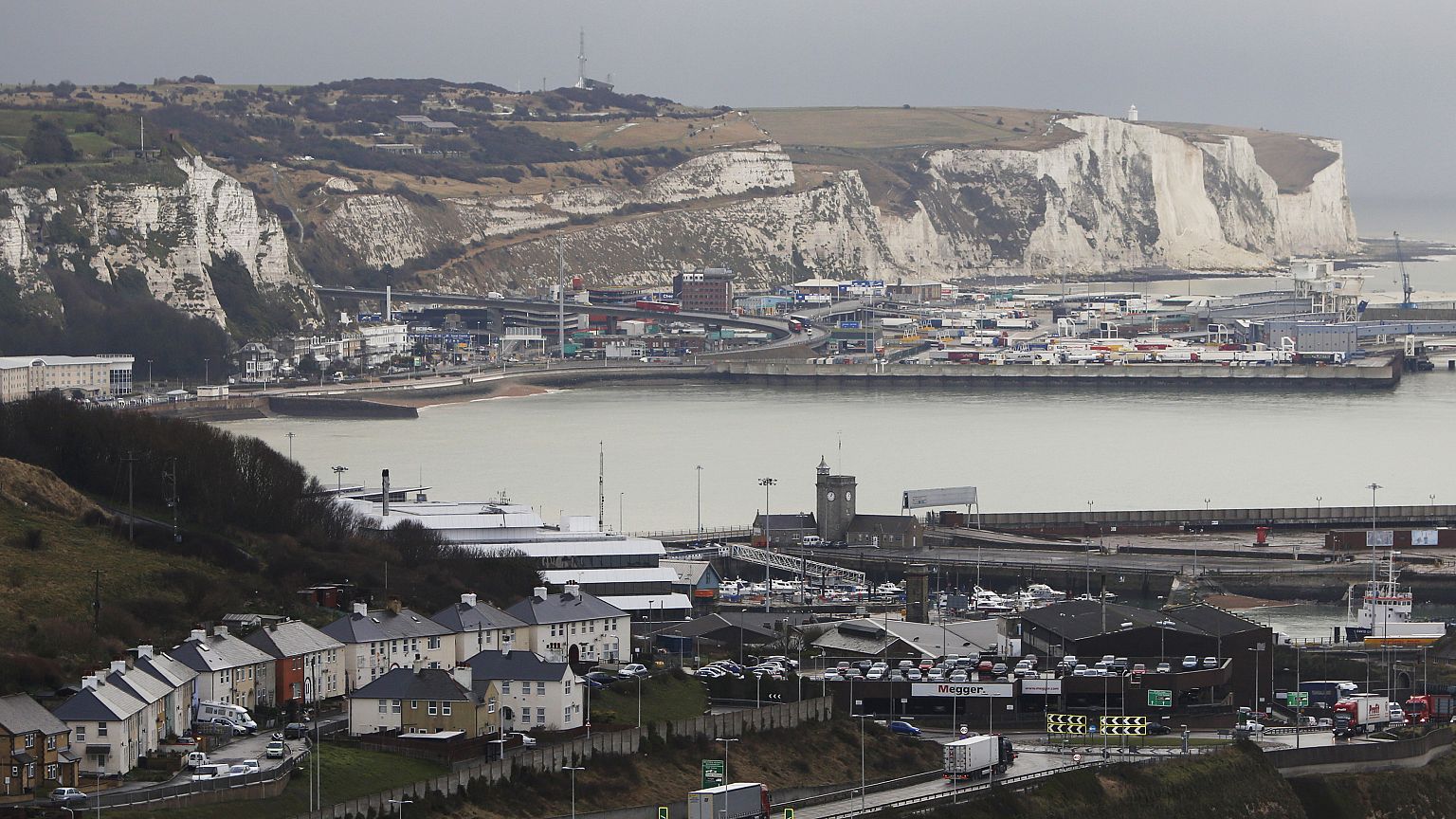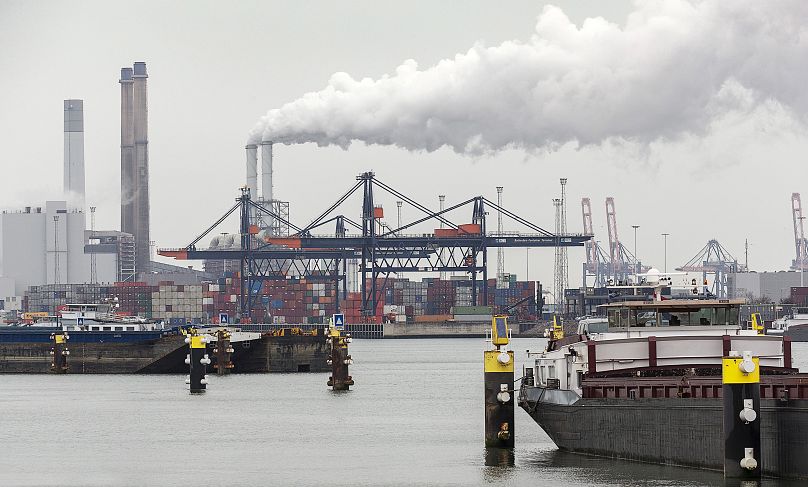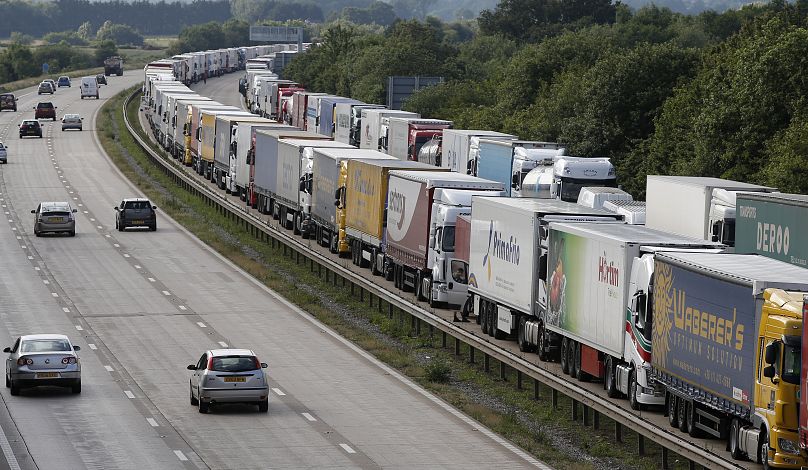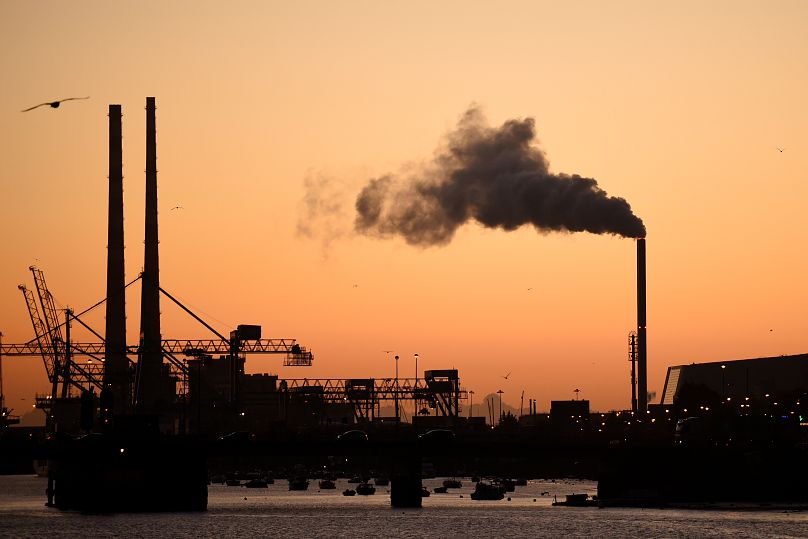The Netherlands and France plan to hire hundreds of new customs officers in preparation for the UK’s exit from the EU. The British government prefers to wait and see.
 ADVERTISEMENT
ADVERTISEMENT
The British government’s policy, faced with the possibility of a no-deal scenario at the end of Brexit negotiations, is to leave large-scale spending plans until a late stage. In contrast, several of the UK’s European neighbours who would bear the brunt of a massive increase in customs checks are leaving nothing to chance.
The United Kingdom
The British government’s stated aim for Brexit is to leave the European Union’s single market and customs union, while seeking a new customs arrangement with the bloc that is “as frictionless as possible”.
Its White Paper on trade and customs after the UK’s departure, published last October, said “it is only prudent that we prepare for every possible outcome”. Customs checks should take place “as inland as possible” to relieve pressure on the ports; technological solutions for advance declarations would be sought, provision was being made for emergency measures.
British Chancellor (finance minister) Philip Hammond said he would wait until “the very last moment” before releasing large amounts of money to fund contingency plans for a no-deal scenario. In the meantime, £250 million from existing reserves was being set aside for limited preparations.
Later that month John Thompson, chief executive of HM Revenue and Customs (HMRC), was grilled by the House of Commons Public Accounts Committee. He said that in the event of “the most extreme version” of Brexit between £300 million and £450 million would be needed. “Our estimate is between 3,000 and 5,000 additional staff would need to be recruited,” he added.
This week Euronews asked HMRC how many customs staff the UK was expecting to hire, where they would be based, whether recruitment had begun, and if not, when would it start.
“We continually review our resourcing in line with departmental priorities and will continue to do so for all areas of our work, including for customs and borders,” a spokesperson said. Pressed further, he said it would “depend on the outcome of negotiations” and referred us to the chief executive’s evidence to the parliamentary committee.
The Netherlands
The Dutch government says it plans to hire at least 750 new customs agents in preparation for the UK’s exit from the EU.
In a letter to parliament, Deputy Finance Minister Menno Snel said the cabinet had decided that agencies should immediately begin recruiting and training more workers, adding that between 750 and 930 full-time employees would be needed.
The government says it is working on two possible scenarios — one where no deal is agreed, and another were terms are struck similar to the EU’s trade deal with Canada.
“For a trading nation like the Netherlands, you just cannot afford for customs not to work, it would be a disaster,” said Pieter Omtzigt, the Dutch Parliament’s Brexit rapporteur who recommended the move.
“If we need hundreds of new customs and agricultural inspectors, the British are going to need thousands,” he added.
France
France is also stepping up its recruitment of hundreds more customs officers before Brexit.
A French Senate report on the 2018 budget just published says the UK’s exit from the EU in early 2019 “will manifest itself by the reinstatement of formalities and controls on goods and passengers across the whole of French customs”, noting that France accounts for around 85% of the UK’s road links with the bloc.
The net creation of 200 extra posts for customs, plus 250 more to fight terrorism, reflect a “lasting reinforcement of staffing levels, to face up to lasting challenges”, the report says.
Last October the lower house of Parliament, the Assemblée Nationale, went further. Its budget report also said reinforcements were needed “to prepare for the reinstatement of a customs border with the United Kingdom”. The head of customs, Rodolphe Gintz, said the number of extra staff needed to deal with Brexit could reach 700.
The deputy mayor of Calais estimates that a hard Brexit could bring long tailbacks. "With the custom controls and custom clearances, we estimate that it could bring about 15-mile queues on the motorway 24 hours a day, seven days a week," Philippe Mignonet told BBC radio.
Belgium
The Belgian finance ministry says an initial estimate of staffing levels has been carried out. It says the number of new recruits will “depend on the result of negotiations” and the “type of Brexit” that results, adding that it is only in the coming months that it can tell exactly how many people will be needed.
Different scenarios have been considered in detail, the ministry says, and a shopping list drawn up of potential items that may be needed after Brexit: more luggage scanners, sniffer dogs, manual scanners, drones to survey the coastline, a submarine to examine ships in the North Sea, as well as vehicles, computers, work spaces, uniforms and weapons.
Ireland
The agreement struck between the UK and the EU in December after the first phase of talks ruled out a future “hard border” between Northern Ireland and the Republic, although many questions remain as to how this can be assured in practice.
In January the Irish government asked all departments to provide contingency plans in the event of no final Brexit deal being agreed, to prepare for a worst-case scenario. Co-ordinated by Ireland’s Foreign Affairs department, ministries are being asked to evaluate in the coming weeks the potential costs and likely resources needed.
The commitment to an open land border does not extend to the sea. The country’s largest sea port at Dublin, half of whose imports come from the UK, is to make a planning application in April to cater for a huge increase in customs checks: including new posts and inspection points.
The Irish Exporters Association estimates that with the UK considered a “third country”, the number of customs declarations handled by Irish authorities will soar to 20 million post-Brexit, from 1.3 million in 2016. Some 80% of goods leaving Ireland for continental Europe reportedly travel through the UK.
Last October an Irish Revenue Commissioners report concluded that Brexit would bring an 800% increase in customs declarations, involving a big increase in staffing levels.
Germany
The German finance ministry told Euronews that the effects on customs of the potential outcomes from the Brexit talks were being constantly evaluated. Action plans are "currently being drafted" to minimise upheaval. For the time being "no concrete staffing" plans for customs are being published.
















